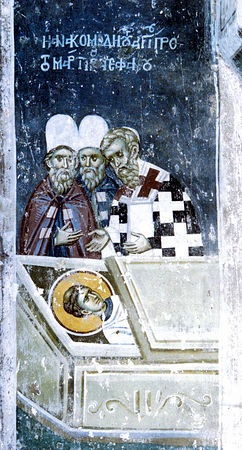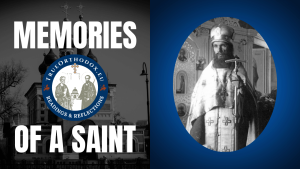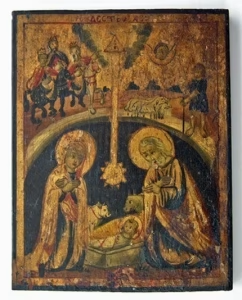The Feast of the Translation of the Relics of the First Martyr Stephen: A Reflection on August 2nd

On August 2nd, the Orthodox Church commemorates the Feast of the Translation of the Relics of the First Martyr Stephen, a day that calls to mind both the courage of this holy martyr and the profound significance of his relics within the life of the Church.
Saint Stephen, known as the Protomartyr, was the first Christian martyr, stoned to death for his unwavering faith in Jesus Christ. His story is recounted in the Acts of the Apostles, where he is described as a man “full of faith and the Holy Spirit” (Acts 6:5). As one of the first deacons of the Church, Saint Stephen was not only a servant to the early Christian community but also a powerful preacher. His bold proclamation of Christ as the Messiah enraged the Jewish authorities, leading to his martyrdom.
As he was being stoned, Saint Stephen’s final words were a prayer of forgiveness for his executioners, mirroring the words of Christ on the Cross: “Lord, do not charge them with this sin” (Acts 7:60). His martyrdom marked the beginning of the Church’s history of persecution, and his example has inspired countless Christians throughout the centuries.
The Discovery and Translation of Saint Stephen’s Relics
The translation of Saint Stephen’s relics is a miraculous event that took place, according to tradition, in 415 AD by a priest named Lucian in the village of Kafargamala, near Jerusalem. Lucian was guided by divine revelation to the location of the relics, which were found alongside the remains of other martyrs.
The discovery of the relics was accompanied by numerous miracles, including healings and the exorcism of demons, which served as a testimony to the sanctity of Saint Stephen and the power of his intercession. The relics were then solemnly transferred to the Church of Zion in Jerusalem, where they were venerated by the faithful.
The veneration of Saint Stephen’s relics quickly spread throughout the Christian world. Portions of the relics were distributed to various churches, and many miracles continued to occur wherever they were venerated. The feast on August 2nd commemorates this sacred event.
In Orthodox Christianity, the veneration of relics is an expression of the belief in the resurrection of the body and the sanctification of the material world through the Incarnation of Christ. The relics of the saints, who have become temples of the Holy Spirit, are regarded as sources of grace and blessings for the faithful.
The translation of relics, such as those of Saint Stephen, is a reminder of the close connection between the Church on earth and the Church in heaven. The relics serve as a tangible link to the saints, who continue to intercede for the faithful before the throne of God. Through the veneration of relics, the faithful are drawn closer to the saints, who inspire them to live lives of holiness and devotion.
As we celebrate the Feast of the Translation of the Relics of Saint Stephen, let us be inspired by his example of unwavering faith and love for Christ. May his prayers and the grace that flows from his holy relics strengthen us in our spiritual journey, leading us ever closer to the Kingdom of God.
In the spirit of Saint Stephen, let us also remember to pray for those who, like him, suffer persecution for their faith, that they may be granted the strength to endure and the grace to forgive, even in the face of great trials.
Through the prayers of the Holy First Martyr Stephen, O Lord Jesus Christ our God, have mercy on us and save us. Amen.







